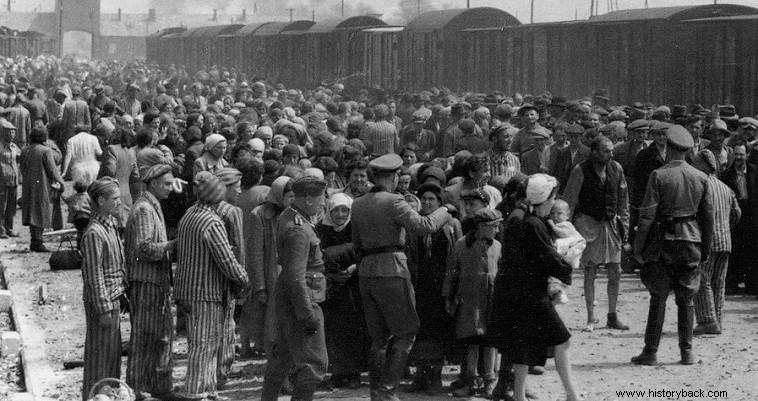
In world history he has remained as the model of the unyielding, measured and exacting judge. When Hans Hofmeier read the decision of the special court that judged in the 60s those responsible for Auschwitz, he entered the Pantheon of exemplary personalities.
During the twenty months that the Auschwitzprozess (Auschwitz trial) lasted, Hofmeier made no concessions to journalists, did not allow television cameras in the courtroom, and conducted the trial in a strict and generous manner.
The newspaper Zeit had characterized him at the end of the trial as a "fanatic of objectivity", while Welt had praised him as a "model of sobriety". But his biography, which for 60 years had remained spotless and untainted, is now in danger of being irrevocably tarnished, due to new documents that have come to light:until 1945, Hofmeier was a fanatical Nazi and a strict judge.
A month and a half into their trial, the twenty Nazis accused of crimes at Auschwitz saw some 360 survivors of the Polish extermination camp paraded before their dock. Many of them were returning for the first time to the country that had imprisoned and tortured them, only to testify before the jury about the horrors they had experienced.
However, despite the overwhelming evidence presented in court by Fritz Bauer, the man who "exposed" the criminal Adolf Eichmann, only six defendants were sentenced to life imprisonment, eleven to 14 years in prison and three were acquitted due to lack of evidence.
Although justice did not fall heavily on all the accused, Hans Hofmeier is still considered a titan of the judicial system. But this rigor and his disposition may not be politicized to the extent that the trial is, it hides something else. This motivated a young researcher, Matias Ristics, who dug into the state archives to add more facts to the judge's monumental biography.
The result was to reveal some disturbing data, which, according to a publication in the Frankfurter Allgemeine Sonntagszeitung, prove that Hofmeier was a fanatical Nazi and led many thousands of women to forced sterilization. And let it be noted that Ristic has so far only investigated the records that go back to 1939 and that after that date Hofmeier had been promoted in the judicial hierarchy.
The documents that came to light tell the story of a very just judge, but in the face of a silent and unsuspecting executioner. In the twelve years of Hitler's rule in Germany, the "sanitary and eugenic laws" of the "superior Aryan race" were applied against the disabled, the mentally challenged, the epileptic, the blind, the deaf, resulting in 300-400,000 people ending up in slaughterhouses of the Nazi regime. In fact, there are 5,000 deaths from the complications of sterilization alone.
The documents concerning Hofmeier also include the case of a small village girl, who was forced to be sterilized because she had contracted meningitis, a disease which, as is known, is not hereditary. But the judge ruled mercilessly that the girl "was stupid" and that she had "failed all her subjects at school" and had to be sterilized.
Other cases handled by the "exemplary" judge concern children with socialization problems, or with psychological disorders. Hofmeiger, as a Prussian supporter of eugenics, of the purity of the Aryan race, also turned against epileptics.
The fact that the judge of the first Auschwitz trial had served on the bench during the Hitler regime was well known. In fact, when the judges were chosen, the first runner-up had been removed because his parents had been persecuted during the Nazi regime, and from this there were suspicions that he might not be impartial.
Hofmeier was chosen precisely because he had worked as a judge during Hitler's omnipotence and because no particular shadows had arisen in his career at that time. In fact, Henry Ormond, one of the lawyers of the Auschwitz trial, had described the way he conducted the trial as "exemplary".
From a political point of view, those trials were the first real opportunity for the still young Federal Republic of Germany to prove to the whole world that it was willing to confront the shame of the Holocaust. Hofmeiger himself had addressed the defendants that "even in the harshest dictatorship no one can forget their humanitarian obligation towards their fellow human beings". In other words, those who for decades had been forgotten by the judge himself during the Hitler dictatorship.
SOURCE:APE-ME
